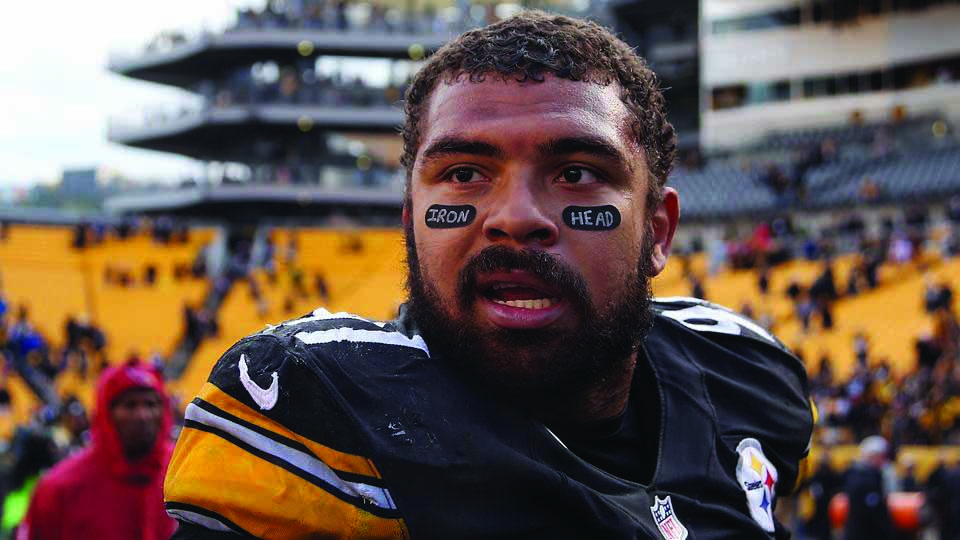Every October, the NFL engages in a variety of activities to promote breast cancer awareness—also known as Pink October. While at face value, the league’s efforts may appear altruistic, further inquiry casts a shadow of doubt upon its intentions.
It’s no secret that the NFL has undergone significant media scrutiny in recent years. The news that 87 deceased NFL players have tested positive for concussion-induced chronic traumatic encephalopathy (CTE) is a terrible backdrop to Ray Rice and Greg Hardy’s domestic violence incidents, as well as Adrian Peterson’s recent child abuse scandal. In contrast to these horrific events, Breast Cancer Awareness Month offers a more family-friendly cause that everyone can get behind and support. It’s a chance for the NFL to gain praise for their philanthropic and altruistic efforts to support people who struggle against cancer every day.
Over the past few years, commentators have questioned the distribution of proceeds raised during Pink October. From last year’s total, a mere 12.5 per cent of profit went towards breast cancer research. The remaining profits were split between the NFL and merchandise wholesalers—many of which are also owned by the NFL.
While the NFL’s profit distribution leaves a stale taste in the mouths of many fans, it seems as if the league can at least be given credit for raising awareness for the cause. One of the ways it does this is through supporting the Susan G. Komen Foundation, which encourages many people to get tested for breast cancer and lends a vital hand in ending the stigma around the disease through positivity and support to cancer patients and survivors. This may prove to be particularly important for people in lower socioeconomic strata who, lacking resources and support, may not have considered getting tested before.
This season, however, the NFL has made a series of insensitive decisions that suggests the motives behind Pink October are not entirely selfless. Players who have attempted to put in their own work to fight cancer have been discouraged, and in some cases, even fined by the NFL. The NFL’s behaviour, when put under scrutiny, seems to be more focused on gaining positive recognition for the league than offering support to those afflicted with cancer.
For example, Steelers defensive end Cam Heyward was recently fined $5,787 for wearing customized eye black honouring his late father Craig “Ironhead” Heyward, who passed away from a brain tumour. Heyward’s eye black prints “iron” on one strip and “head” on the other. He plans to sell the eye black to benefit cancer research at the Children’s Hospital of Pittsburgh and the Southeastern Brain Tumor Foundation.
Additionally, the NFL denied Pittsburgh Steelers running back DeAngelo Williams’ request to wear pink accessories all season long in an attempt to pay tribute to his mother and aunts who died of breast cancer because it conflicted with the league’s uniform policy. When the NFL refused this request, Williams opted to cover mammogram costs for 53 women.
With regards to Williams’ previous team, the Carolina Panthers, the NFL’s position against Williams is particularly poignant. In previous years, the league had Williams’ now deceased mother, Sandra Hill, appear in pregame ceremonies to advocate for breast cancer awareness. As a breast cancer patient, Hill’s contribution to Pink October was vital as it added a necessary element of legitimacy to the NFL’s campaign.
The NFL’s refusal to support cancer victims outside of Pink October demonstrates an exploitative side to the month. It appears as if the league is cashing in on its players’ negative experiences with cancer in order to position the NFL in a positive light. It communicates to the public that the NFL’s business in breast cancer awareness is not to offer positivity to cancer fighters or to help the healing process of its survivors, but rather a tactic to manage its image as tightly as possible.
Fans are now left with the question: Are the NFL’s breast cancer awareness policies morally permissible? It may seem callous to criticize the league for its work, but it’s hard not to question the NFL’s motives. Breast cancer doesn’t stop after the month of October, and Williams’ and Heyward's efforts shouldn’t have to either.










Incredible Article!